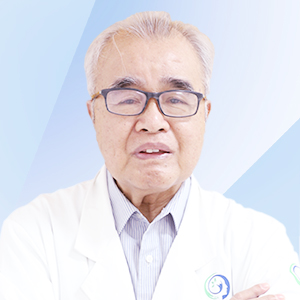广州附医华南医院精神科 > 失眠 >
失眠怎么办?老是失眠或是生活习惯“出错”
来源:广州附医华南心理精神专科医院哪家好 日期:2017-12-27
失眠,是21世纪的世纪难题,影响着每个各个年龄层次的人群。
网络上关于失眠的帖子多不胜数,失眠怎么办?失眠比较好的治疗方法有哪些?孕妇失眠怎么办?
老年人失眠怎么办?更年期失眠怎么办?我们发现,失眠怎么办是广大失眠患者问的比较多的问题。
其实,失眠不难解决,改改自己的生活习惯就能解决失眠难题。
◆喝酒吃安眠药不能成为常事。
失眠患者在久久难以入眠时,会借助外物来解决失眠难题,比如说大量喝酒、服用安眠药来助眠,反复如此就渐渐上瘾难以摆脱。这种不良习惯不能成为常事,借助药物酒类助眠会破坏正常的脑部活动,使睡眠程序紊乱,即使睡了也不是真正意义上的睡眠,仍是很累。
◆没有睡意别“上床”。
看到床,正常人就会有即将入睡的条件反射,床和卧室就是我们要睡眠休息修复身体的地方。倘若你精神奕奕地坐在床上玩手机、看书,会破坏这个条件反射,即便深夜仍没有睡意。所以,没有睡意就别“上床”,去书房或客厅待着,等到疲倦哈欠连连时,就该是上床的时候了。
◆睡觉前让大脑一片空白,身心放松。
电子产品的泛滥,使各个年龄层次的人群在晚上睡觉前还要刷刷朋友圈、玩玩荣耀才肯上床。殊不知,这类脑力活动实在不适合睡前进行,会使大脑在睡眠后仍处于活动状态。睡觉前不妨将头脑中紧绷的弦松开,散散步或者泡泡脚,让老伴给你按摩颈肩,舒服地静坐片刻,都会成为睡觉前的催眠状态,让你获得更好的睡眠,摆脱失眠。
◆白天补觉补不回昨晚的睡眠缺失。
失眠之后,人处于焦灼不安的状态,很多人会以白天打盹的方式来补充昨晚的失眠缺失。然而,白天光亮且嘈杂,与人体生物节律不同步,导致人体的阳气受到抑制,外出开车时还暗藏交通隐患。因此,白天补觉不是一个明智的选择,不如晚上早点上床睡觉更好。
以上就是关于“失眠怎么办”的回答。失眠是一种难受的体验,明明很累瘫在床上,脑袋里却没有停歇的意思,依然思绪万千,不一会天就亮了。赶快从上面的小习惯开始改变,让失眠远离你。
关于失眠,你还想了解更多吗?下面北京失眠医院 北京治疗失眠 北京德胜门精神科给大家推荐一篇国外的文献阅读,希望您对失眠有更多的了解。
Insomnia Increases Suicide Risk
insomnia
Insomnia and disturbed sleep are common among people with depression and other mental health problems. Research indicates that people with depression are significantly more likely to experience insomnia symptoms. Insomnia also has been linked to an elevated risk for suicide. A recent study offers new details about the relationship between insomnia and suicidal thoughts among people with depression.
Researchers at Georgia Regents University examined the possible influence of insomnia and disturbed sleep among patients with a history of depression and suicide. Their analysis revealed that the connection between insomnia and suicidal thoughts may be influenced by nightmares, and also by the presence of negative attitudes and beliefs about sleep in patients who are suffering from depression.
Their study included 50 patients between the ages 20-84. All had received treatment for depression either as inpatients or outpatients, or in the emergency room. Seventy-two percent of the participants were women, and a majority—56%–had attempted suicide at least once. Researchers measured levels of depression and insomnia, feelings of hopelessness, as well as the presence and severity of nightmares and attitudes and beliefs about sleep.
Participants experienced moderate insomnia, on average
As expected, their analysis showed an association between the presence and severity of insomnia and suicidal thoughts
Researchers also analyzed data to examine the possible relationship between nightmares and attitudes about sleep with suicidal thoughts, and found significant associations. When these additional sleep problems were included in the analysis, insomnia itself was no longer directly associated with suicidal thoughts. This suggests that insomnia may have an indirect effect on suicidal thoughts, through the presence of these other symptoms, in patients who are depressed.
Among people with depression, insomnia contributes to a sense of hopelessness about sleep, according to researchers. These negative feelings about sleep, as well as nightmares experienced by people with depression and insomnia, may be critical predictors for suicidal thoughts.
This is important new information in our understanding of the link between insomnia and suicide. The presence of these symptoms—nightmares and feelings of hopelessness about sleep—may be a more specific predictor of suicide risk among people with depression than insomnia in general.
Earlier work by some of the same researchers explored the relationship between insomnia and suicide. Their study included 60 patients between the ages 18-70. Two thirds were women, and all suffered from major depression and insomnia symptoms. Researchers found that the severity of insomnia among these patients was linked to degree of suicidal thoughts. More severe insomnia was associated with higher intensity of suicidal thoughts. In their analysis, researchers isolated insomnia from other symptoms of depression, such as low mood and inability to experience pleasure. They determined that insomnia is an independent predictor of suicidal thinking. This latest study built on those findings, looking with greater depth and specificity at how insomnia and related attitudes and behaviors of disrupted sleep may influence suicidal thoughts.
Other research has shown a strong association between insomnia and disrupted sleep and suicide for people with depression and other psychiatric disorders:
This study examined the relationship of nighttime sleep disturbances—including insomnia and nightmares—and the risk of suicide among psychiatric outpatients. Researchers found that both insomnia and nightmares were linked to an elevated risk of suicide.
This study also investigated sleep disturbances and nightmares as risk factors for suicide. Rather than including only participants with depression or other psychiatric disorders, Hungarian researchers used a broad sample of data, representative of the general population of Hungary. They found that sleep disturbances and nightmares elevated the risk of suicide by as much as 4 times among men, and as much as 3 times among women. In this study, frequent nightmares and sleep disorders were associated with a higher risk of suicide than depression.
Sleep problems have been shown to be strong predictors of suicidal behavior for adolescents. This research reported that sleep problems in early adolescence (ages 12-14) were a significant predictor of suicidal thoughts and self-harming behaviors by later adolescence (ages 15-17). And this study of young adults in the military revealed sleep problems to be a stronger predictor of suicidal thinking than depression or feelings of hopelessness.
In addition to risks for young adults, there also appear to be particular risks for older adults, in the connection between suicide and insomnia and disrupted sleep. This research showed that older adults with sleep problems were at greater risk for suicide than those in their age group who maintained healthy sleep patterns.
Understanding how insomnia and other sleep problems contribute to hopelessness and thoughts of suicide can provide important new options for suicide prevention and treatment of depression and suicidal thoughts. By identifying nightmares and dysfunctional, negative attitudes about sleep as important predictors of suicidal thinking in people with depression, we may be better able to identify those who are at greater risk for self-harm.
招教你防治失眠
适当运动
如果运动量太少的话,会导致脾虚,气血不足,然后导致失眠。所以平时一定要加强体育锻炼,增强体质!
为了良好的睡眠质量,每天应该适当进行有氧运动,比如快步行走等运动方式。锻炼要注意恰当,时间大概是40分钟,稍微出汗就行,可以测测自己的心率,比较好不超过每分钟110~120次,不要过度疲劳。
合理膳食
如果暴饮暴食,会伤胃。胃不舒服,睡觉就不会安稳。所以晚餐不能吃太多也不能吃太少,更应该吃一些清淡容易消化的食物。
记住,睡前万万不能喝咖啡、浓茶什么会让人兴奋的饮料。虽然生活中有少数人在晚上大量食用咖啡、巧克力、可乐、茶等食品或饮料之后,主观上并没有睡眠不良的感觉,但有研究表明,这样的人深度睡眠会受到不易察觉的影响。
为提高睡眠质量,睡前可以喝半杯热牛奶,舒缓神经,促使人们入睡。
调节心态和情绪
有许多人容易失眠,是因为平时事事存在心里,容易感伤或者生气。防治失眠,需要自己好好调节心态和情绪,避免过度紧张、兴奋、焦虑、抑郁、惊恐、愤怒等不良情绪的发生,保持心情舒畅,以放松的心态对待生活。睡前可以听一些舒缓的音乐,设置时间自动关停,帮助你慢慢入睡。
早睡很重要
再说几遍,早睡很重要很重要很重要!如果你每天都熬到十一二点,甚至凌晨才睡,什么灵丹妙药也没用的!
要想不失眠的话,先把自己的作息调整过来,顺应自然,比较好十点半就上床睡觉,还要室内通风,选择舒适的床和枕头,并培养正确的睡眠姿势,一般主张向右侧卧,微曲双腿,身体自然放松,一手屈肘放枕前,一手自然放在大腿上。
失眠吃什么好?失眠食物 吃什么能提高睡眠质量
香蕉
香蕉实际上就是包着果皮的“安眠药”,它除了含有丰富的复合胺之外,还富有能使肌肉放松的镁。
温奶
睡前喝杯温奶有助于睡眠的说法早已众人皆知,因为牛奶中包含一种色氨酸,它能够像氨基酸那样发挥镇静的功效。而钙能帮助大脑充分利用这种色氨酸。
杏仁
杏仁中有丰富的蛋白质、维生素等营养成分,和蜂蜜一样,也含有色氨酸和松缓肌肉的镁。经常吃有助于缓解焦虑情绪,睡眠。此外,杏仁还有利于心脏健康,还能帮你“清洁”肠道。
菊花茶
菊花茶之所以成为睡前配制茶饮品的选择,主要是因为其柔和的舒眠作用,是凝神静气的比较好的天然药方。
经常失眠抑郁怎么办,又不好意思去医院
别担心、还有北京德胜们中医院
温馨提示:北京哪家医院治疗失眠比较好?北京失眠医院 北京精神科医院 北京德胜门精神科医院是一所真正具有中医的中医院,专业治疗失眠症,是北京失眠、抑郁症医院的翘楚
精神分裂症、情感性精神障碍(燥狂症、抑郁症)、儿童精神障碍、人格障碍、偏执性精神障碍、反应性精神障碍、老年精神障碍、失眠症、睡眠障碍(失眠、入睡困难、睡眠不足、经常失眠)、脑外伤所致精神障碍、阿片类药物所致精神障碍、各类神经症、癫痫所致精神障碍、慢性疼痛、性心理障碍、老年性痴呆、躯体疾病所致精神障碍、脑肿瘤所致精神障碍、镇静催眠药物所致精神障碍、精神药物过量与中毒、酒精所致精神障碍、癔症等若您有相关的精神科问题想要咨询,可以在线咨询北京精神病医院医生在线医生哦,还可以在线挂号,在线挂号就诊免排队哟。
然后,还要唠叨一句,失眠如果一直自己调理都不好,建议是及时到医院检查治疗,失眠危害多多百度一下你就知道。
本文章链接地址:http://www.sdjtxh.com/smz/721.html 上一篇:你还觉得失眠是小事?慢性失眠可引发抑郁 下一篇:白天困成狗晚上睡不着 失眠的7大危害让你少活10年广州看精神病医院HOSPITAL

出诊医生EXPERT
推荐阅读ANSWER
更多- 广州治疗精神障碍门诊挂号平台[04-21]
- 广州专业的心理疏导医院.[04-21]
- 广州专业的抑郁症专业医院[04-21]
- 广州市治疗精神分裂症医院在什么地方[04-18]
- 广州市专业的儿童心理问题医院哪家好[04-18]
- 广州专业的心理疏导医院[04-18]
- 广州检查心理咨询门诊挂号平台[04-17]
- 广州市检查睡眠障碍找那个医院[04-17]
- 广州市专业的儿童心理问题专业医院[04-17]
- 广州治疗抑郁症去哪家医院[04-16]









